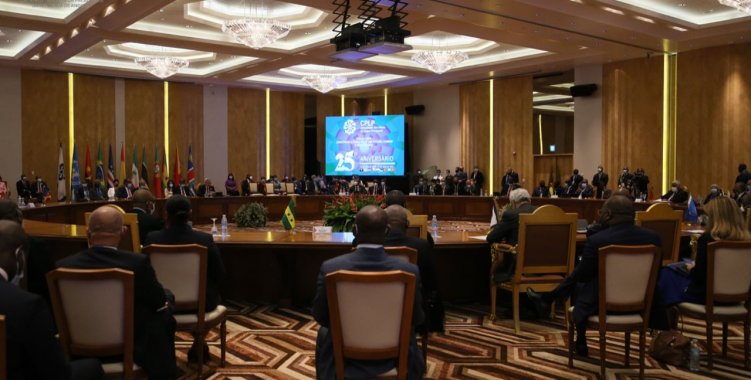At the XIII Conference of CPLP Heads of State and Government, the nine countries that compose it signed a mobility agreement, which will have to be ratified and will allow the circulation of professionals, students and businessmen, a process concluded by the Cape Verdean presidency.
"We consider that the free movement of the citizens of the community, the enhancement of the economic value of the Portuguese language and the projection of culture are key elements for a greater consolidation of the CPLP", highlighted Cape Verde's President, Jorge Carlos Fonseca.
The Portuguese Prime Minister, António Costa, considered that this agreement "will change everything in people's lives" because it reverses the current principle of authorization for the issuance of visas to freedom of movement and undertook to present the ratification proposal now. in parliament, which it hopes to see approved in September.
Angola, which began its two-year term as CPLP presidency, has already announced the objective of creating a common investment bank, an idea that, admitted the Portuguese President, Marcelo Rebelo de Sousa, can advance if there are significant investments from various parties.
"We can be a relevant economic force if we work for it", said President João Lourenço.
The creation of a potential bank is in line with the intention to include a new economic and business pillar in the organization, an old objective that will only now be achieved by member countries, requiring, for that, changing the organization's statutes.
As for Equatorial Guinea, which joined in 2014 and pledged to end the death penalty, countries once again insisted on fulfilling that commitment.
In addition to the end of the death penalty, the Portuguese President referred to "the rule of law, democracy, human rights, fundamental values and principles".
On this matter, António Costa referred that it is "a problem that no one ignores" and recalled that Equatorial Guinea has an obligation to fulfill the commitments it has assumed. If he doesn't, he "can't be part" of the community, he warned.
Lusophone leaders also repudiated the attacks in northern Mozambique and expressed solidarity with the Mozambican authorities, but without deciding on any concrete support from the CPLP.
The head of State of Portugal received the José Aparecido de Oliveira Prize and decided to donate the 30,000 euros of the award to Caritas de Moçambique to support non-governmental organizations operating in Cabo Delgado.
At this summit, the former head of Timorese diplomacy, Zacarias da Costa, who succeeds the Portuguese Francisco Ribeiro Telles, who was praised by political leaders for the "dedication, high competence and determination" with which he served the CPLP, took office as the new executive secretary. .
Breaking a tradition of the organization, the leaders decided to postpone for 15 days the announcement of the country that will host the next summit, in 2023, and which is traditionally the state that later holds the rotating presidency of the CPLP.
Marcelo Rebelo de Sousa explained that it was decided to wait for elections in São Tomé and Príncipe to find out if the country is available to receive the organization's presidency.
On Sunday, São Tomé and Príncipe held the first round of presidential elections, followed by a second round, the date of which has yet to be set.







